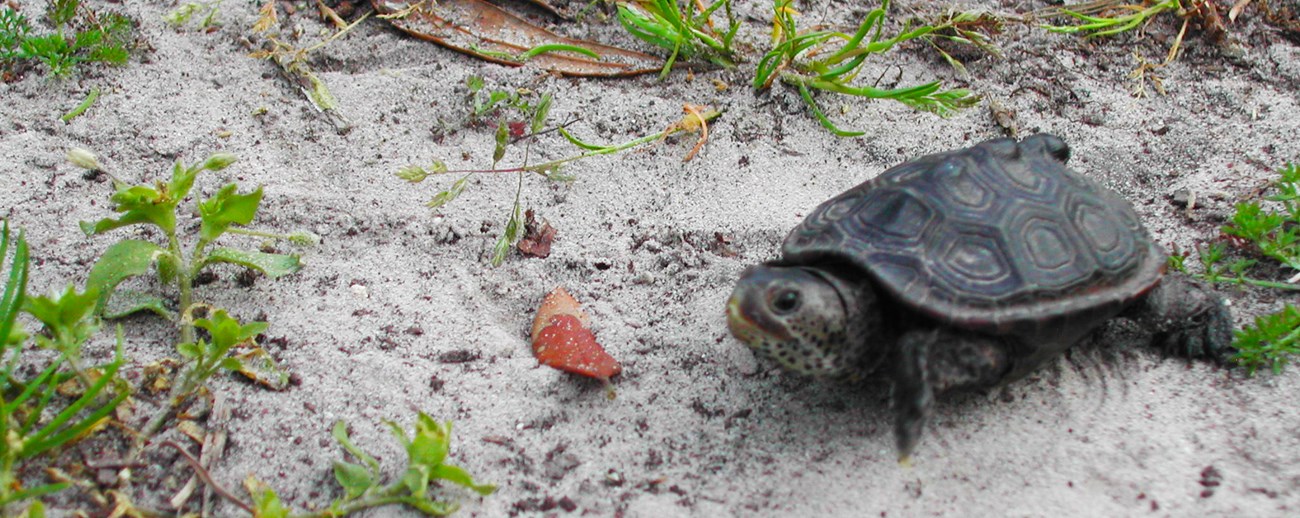
NPS/Mohrman Diamondback terrapins, also called Malaclemys terrapin, are the only turtle species that call coastal estuaries their home. They are more related to freshwater turtles than sea turtles even though they live in a saline environment. Special adaptations allow them to thrive in the brackish water of salt marshes. Diamondback terrapins get their name from the distinctive growth rings on the top part of their shell, or carapace. They have large webbed feet and long claws which they use to swim and navigate over tough terrain. The range of these turtles extends as far south as Bermuda and as far north as Massachusetts. The Mississippi subspecies only lives along the coastal areas from east Louisiana to the Florida panhandle.
Their diet consists of carrion, small mollusks, crustaceans, fish, and insects. Diamondback terrapins are sexually dimorphic. Adult females are about twice the size of males with a shell length of 12 inches. Females nest on beaches consisting of sediment or shells and lay an average of eight eggs at a time. Their eggs hatch within 80 days, starting a life span that can last 40 years.
The Diamondback terrapin is a vulnerable specie and faces many threats. They, by nature, do not protect their nests. This leaves eggs and young terrapins vulnerable to racoons, snakes, and other predators. Anthropogenic impacts also threaten the survival of terrapins. Habitat loss, entanglement in crab traps, and motor vehicles all threaten their survival. Laws limiting human impact in wetland habitat protect the diamondback terrapin and many other species. Educating those who fish in these areas on the harm of misusing traps furthers the aid these laws provide. Females will often cross roads in search of nesting areas. Signs or barriers along roadways mark terrapin habitat and help prevent vehicle fatality. Remember to slow down and keep an eye out for wildlife crossing signs as you enter park areas.
|
Last updated: April 22, 2020
